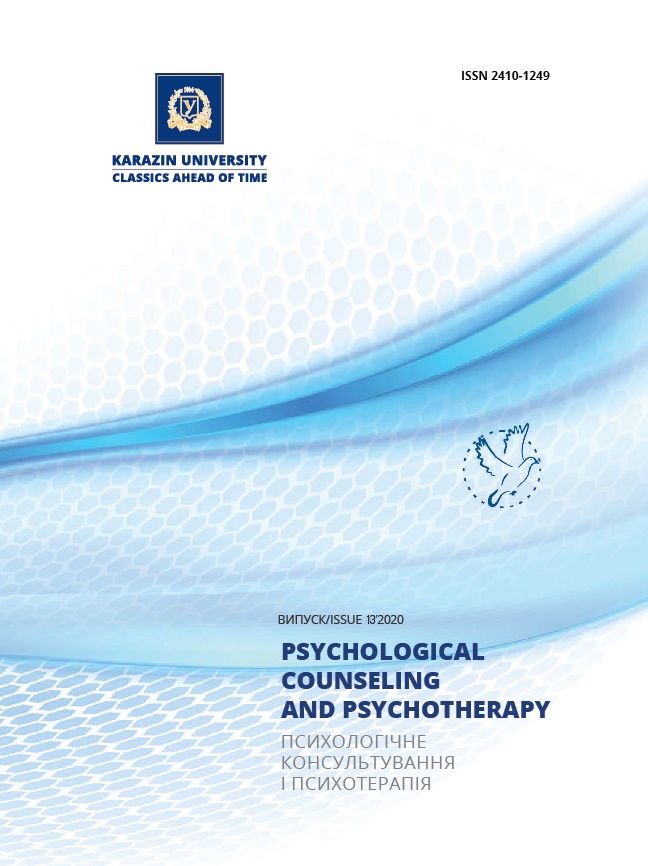Соціокультурні та психологічні особливості європейців та росіян як чинник ефективності взаємодії та взаєморозуміння представників різних культур
Анотація
Сучасний стан міжнаціональних стосунків свідчить про те, що поруч із процесами глобалізації мають місце зворотні процеси деглобалізації, що знаходять відображення у прагненні народів до збереження національної самобутності. Глобальна інтеграція передбачає адаптацію не лише економічну, політичну і т.п., але й інтеграцію психологічну. Психологічним бар’єром можуть стати психологічні особливості людей як представників іншої етнічної або національно-культурної спільноти. Одним із чинників виникнення мультикультурних конфліктів є етнопсихологічні відмінності між націями та народами. Згідно з теорією К.Г. Юнга, у колективному підсвідомому людства зберігаються архетипи – «колективні праформи», що є результатом його еволюції. На психологічне наповнення архетипічної основи психіки мають впливати історичні особливості становлення певного етносу. Теорія архетипів Юнга в контексті досліджень сучасних психологів, археологів, психолінгвістів, істориків, соціоантропологів дозволяє охарактеризувати глибинні психологічні особливості того чи іншого етносу. На основі аналізу літературних джерел виділені найбільш характерні риси представників європейської та російської культур. Авторка виходила із припущення про те, що етнопсихологічні особливості детерміновані як архетипічно, так і етногенетично. Міфи, легенди, казки, билини, обряди, замовляння, археологічні, психолінгвістичні, соціоантропологічні, історичні дані в контексті теорії Юнга уможливлюють відтворення деяких суттєвих етнопсихологічних особливостей певного народу. В результаті застосування такого підходу були виділені окремі риси, притаманні європейцям і росіянам, що дало можливість зробити висновки більш загального характеру:
- Етнопсихологічні особливості утворюють паттерни, в яких можна виділити системотвірні чинники.
- У європейців системотвірним чинником національного характеру є потяг до володарювання над довкіллям та іншими; у росіян – «Материнський комплекс», що являє собою неусвідомлюваний потяг до існування у максимально сприятливому середовищі як певній даності.
- Назви особливостей національної психіки або національного характеру різних народів можуть бути за словником однаковими, але мати різне психологічне наповнення, різний психологічний зміст.
- Непорозуміння між представниками різних етносів можуть виникати через неоднакову інтерпретацію однакових за назвами рис.
Завантаження
Посилання
Gizatova, Gulnaz K., Ivanova, Olga G., Snarskaya, Ekaterina V. National Identity, Mentality and Character. Journal of humanities and cultural studies. ISSN 2356-5926. 42–47.
Gumilyov, Lev N. (1995) From Rus' to Russia. Essays on ethnic psychology. Moscow: Tanais DI-DIK. (ШТ кГІІШФТ)
Zwir, Igor, Arnedо, Javier, […] Cloninger, C. Robert (2018). Uncovering the complex genetics of human character. Molecular Psychiatry. (in Russian)
Rentfrow, P.J, Jokela, M., Lamb, M.E. (2015). Regional Personality Differences in Great Britain. 10(3), e0122245. URL: https://doi.org/10.1371/journal.pone.0122245 (in Russian)
Gachev, G. (1988). National images of the world. Moscow: Soviet writer. (in Russian)
Jung, K.G. (1998). Psychological types. Moscow: "University book", LLC "Firm" Publishing House "AST". (in Russian)
Jung, K.G. (1995). Tavistock Lectures. Analytical psychology: its theory and practice. Kyiv: SINTO. (in Russian)
Rybakov, B.A. (1981). The paganism of the ancient Slavs. Moscow: Nauka. (in Russian)
Kuhn, N.A. (2012). Legends and myths of ancient Greece. Kharkov: Folio. (in Russian)
Rybakov, B.A. (1984). From the history of the culture of ancient Rus'. Moscow: Moscow university Publishing House. (in Russian)
Sergeeva, A. (2016). The road to the thirtieth kingdom: Slavic archetypes in myths and fairy tales. Moscow: LLC Book publishing house "Sofia". (in Russian)
Yatchenko, V.F. (2004). The history of the spiritual culture of the Ukrainian ethnic group. Part one. Ancient Ukrainian culture. Kyiv: Millennium. (in Ukrainian)
Jung, K.G. (1997). Alchemy of dreams. St. Petersburg: Tymoshka.
Jung, K.G. (1998). Psychological types. Moscow: "University book", LLC "Izdatelstvo AST".
Yaniv, V. (1996). Psychological foundations of Occidentalism. Munich: Ukrainian Free University. (in Ukrainian)
Harari, Yuval Noah. (2020). 21 lessons for the 21st century. Kyiv: Force Ukraine. (in Ukrainian)
Bryushinkin, V.N. (2005). Phenomenology of the Russian soul. Questions of Philosophy, 1, 29–39. (in Russian)
Bondarenko, A.F. (2012). Russian tradition in psychotherapy: in search of origins. Language. Culture. Psychotherapy. Kyiv: Department. pp. 334-338. (in Russian)
Brushlinsky, A.V. (2002). Psychology of the Subject: Individual and Group (Part I). Psychological Journal, 23(1), 71 79. (in Russian)
Bondarenko, A.F. Ethical personalism: a cultural tradition in psychological counseling. URL : http://medpsy.ru/mprj/archiv_global/2015_2_31/nomer03.php (in Russian)
Orlov, Dmitry. Peculiarities of Russian National Character. URL : https://cluborlov.blogspot.com/2015/01/peculiarities-of-russian-national.html?m=1&fbclid=IwAR1vS11XlDY2ErTZQli7JeyYYe21F8PjxyHDq4h3Lbdh5EoDwDWPNQei2HA
Znakov, V.V. (2005). Psychology of understanding (Problems and prospects). Moscow: Institute of Psychology RAS. (in Russian)








